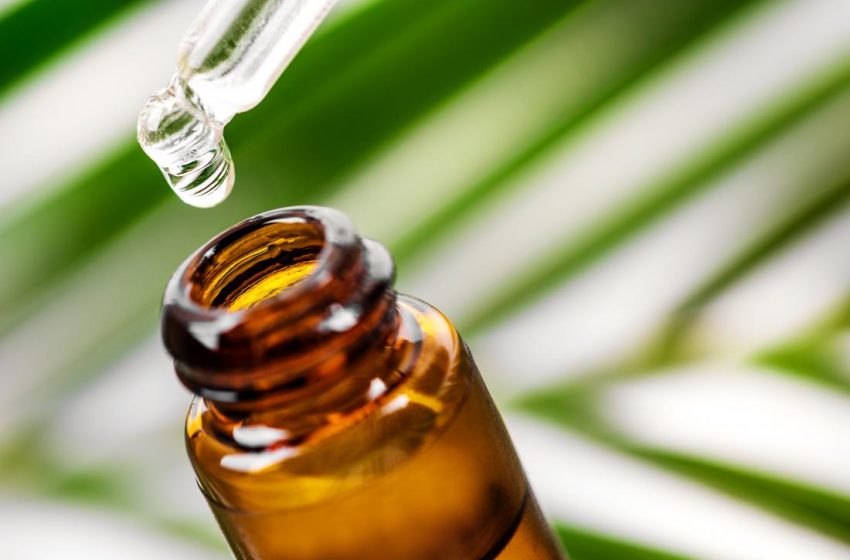Harnessing the Power of Tea Tree Oil: Benefits, Uses, and Safety

Introduction:
Tea tree oil, derived from the leaves of the Melaleuca alternifolia plant native to Australia, has been valued for centuries for its remarkable medicinal properties. Renowned for its potent antimicrobial, anti-inflammatory, and antiseptic qualities, tea tree oil has found its way into countless skincare, haircare, and household products. In this comprehensive guide, we’ll delve into the origins, benefits, uses, and safety considerations of tea tree oil.
Origins and Extraction:
Tea tree oil traces its origins to the Aboriginal people of Australia, who utilized the leaves of the Melaleuca alternifolia tree for various medicinal purposes. The oil is extracted through a process of steam distillation, whereby the leaves are heated to release their essential oils, which are then condensed into a potent, aromatic liquid. This pure oil contains a plethora of bioactive compounds, including terpinen-4-ol, cineole, and alpha-terpineol, which imbue it with its therapeutic properties.
Benefits of Tea Tree Oil:
-
Antimicrobial Properties: Tea tree oil possesses powerful antimicrobial properties, making it effective against a wide range of bacteria, viruses, and fungi. Studies have shown its efficacy in combating common pathogens such as Staphylococcus aureus, Escherichia coli, and Candida albicans.
-
Anti-Inflammatory Effects: The anti-inflammatory properties of tea tree oil make it a valuable asset in skincare, particularly for addressing conditions like acne, eczema, and psoriasis. Its ability to reduce redness, swelling, and irritation can soothe inflamed skin and promote healing.
-
Antiseptic Action: Tea tree oil’s antiseptic properties make it an excellent natural remedy for minor cuts, scrapes, and insect bites. Applied topically, it helps cleanse wounds, prevent infection, and accelerate the healing process.
-
Antioxidant Activity: Rich in antioxidants, tea tree oil helps protect the skin from oxidative stress and free radical damage. This can help prevent premature aging and maintain skin health and vitality.
-
Hair and Scalp Care: Tea tree oil is widely used in hair care products for its ability to combat dandruff, soothe itchy scalp, and promote healthy hair growth. Its antifungal properties make it effective against conditions like scalp folliculitis and seborrheic dermatitis.
Uses of Tea Tree Oil:
-
Skincare: Tea tree oil can be diluted with a carrier oil and applied topically to treat acne, wounds, and skin infections. It can also be added to facial cleansers, toners, and moisturizers to enhance their antimicrobial properties.
-
Haircare: Incorporate tea tree oil into your shampoo or conditioner to combat dandruff, alleviate scalp itchiness, and promote a healthy scalp environment. You can also create a DIY hair mask by mixing tea tree oil with coconut oil or olive oil for a nourishing treatment.
-
Household Cleaning: Tea tree oil’s antimicrobial properties make it an excellent natural cleaner for your home. Dilute it with water and vinegar to create an all-purpose cleaner that is effective against bacteria and mold. You can also add a few drops to laundry detergent to disinfect clothes and linens.
-
Insect Repellent: Tea tree oil can be used as a natural insect repellent to deter mosquitoes, flies, and other pests. Simply mix it with water and spray it around your home or apply it directly to your skin for protection against bites.
Safety Considerations:
While tea tree oil offers numerous benefits, it’s essential to use it safely to avoid adverse reactions. Here are some key safety considerations:
-
Dilution: Tea tree oil is highly concentrated and can cause skin irritation if applied directly. Always dilute it with a carrier oil, such as coconut oil or almond oil, before applying it to the skin.
-
Patch Test: Before using tea tree oil on a larger area of your skin, perform a patch test to check for any allergic reactions or sensitivities. Apply a small amount of diluted oil to the inner forearm and wait 24 hours to observe any adverse effects.
-
Avoid Ingestion: Tea tree oil should never be ingested, as it can be toxic if consumed orally. Keep it out of reach of children and pets, and avoid using it in recipes or as a dietary supplement.
-
Pregnancy and Children: Pregnant or breastfeeding women should consult with a healthcare professional before using tea tree oil. Similarly, use caution when using tea tree oil on children, as their skin may be more sensitive to its effects.
Conclusion:
Tea tree oil stands as a testament to the healing power of nature, offering a myriad of benefits for skincare, haircare, and household use. From its antimicrobial and anti-inflammatory properties to its versatility in everyday applications, tea tree oil has earned its place as a staple in natural medicine cabinets around the world. By understanding its origins, benefits, uses, and safety considerations, you can harness the full potential of this remarkable essential oil in your daily life.

